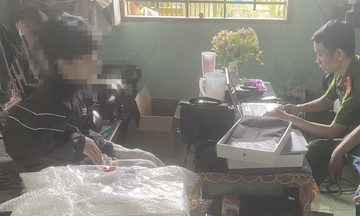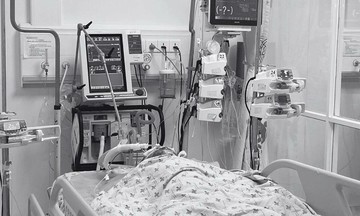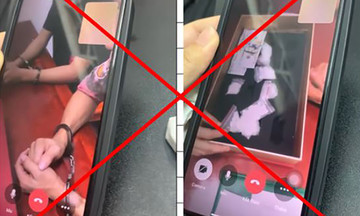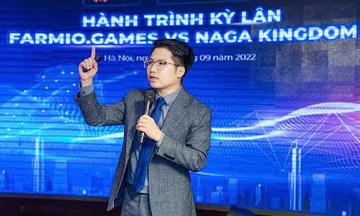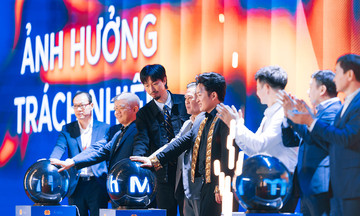This is the third time Vietnam has granted two amnesties in a single year, the previous instances being in 2009 and 2011.
Lieutenant General Le Van Tuyen, deputy minister of public security, stated that the criteria for this amnesty are broader than those applied for the first amnesty on 30/4. This is due to the significance of this year's national day. For example, individuals convicted of robbery, property theft, and repeated theft will be considered, unlike the previous amnesty.
Another change relates to the evaluation of emulation (a socialist competition system). "Currently, the evaluation criteria have been expanded. The amnesty advisory council has provided more specific guidance on the condition that 'the amnesty must not negatively impact security and order'. This gives prisons clearer criteria for their assessments", Tuyen said.
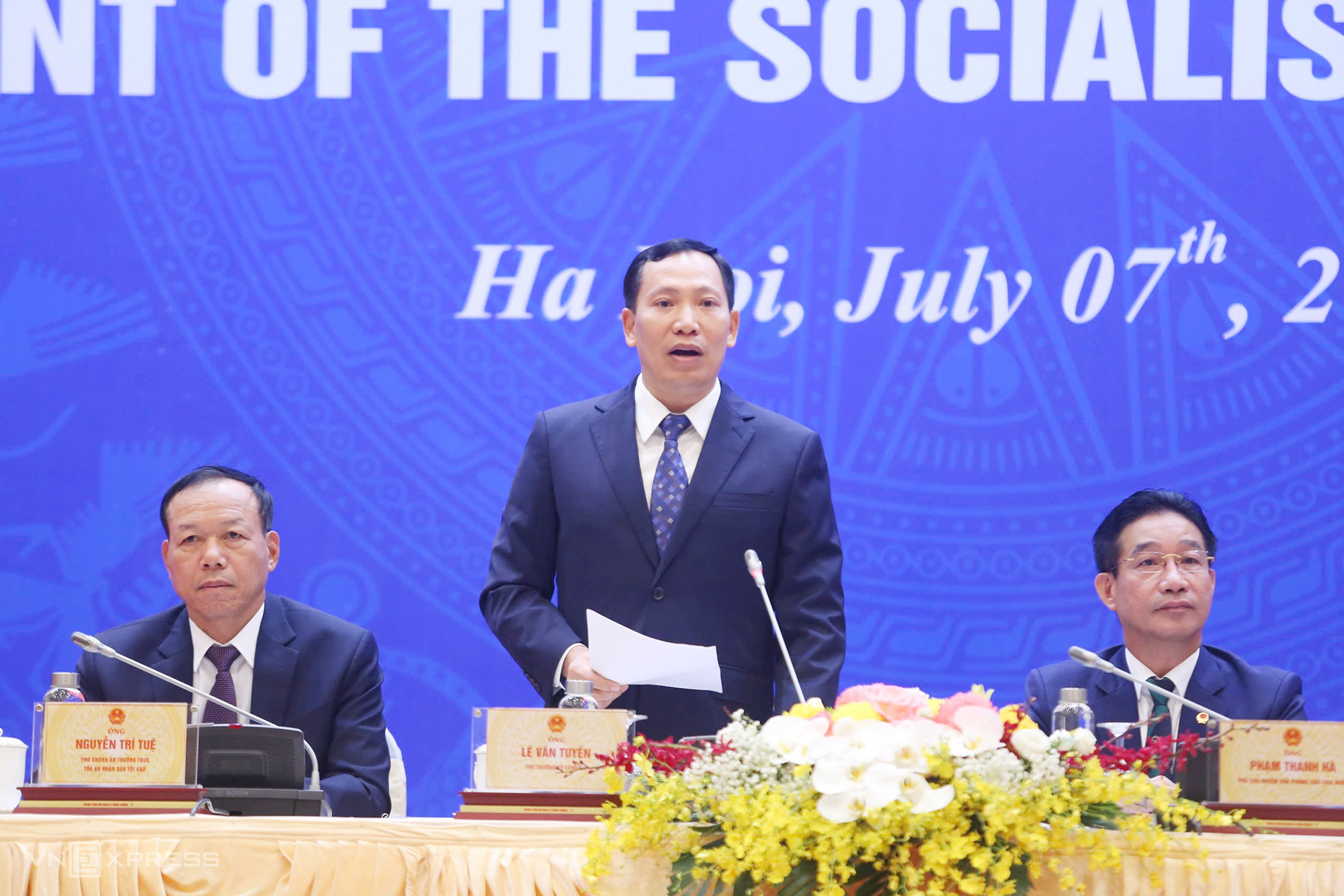 |
Lieutenant General Le Van Tuyen (standing) at the press conference on Friday. Photo: Pham Du |
Lieutenant General Le Van Tuyen (standing) at the press conference on Friday. Photo: Pham Du
The national day amnesty will consider cases of individuals serving fixed-term prison sentences, those with life sentences reduced to fixed terms, and those whose sentences are currently suspended. The period of imprisonment considered for amnesty will be calculated up to 31/8.
From 20/7 to 2/8, interdisciplinary assessment teams will visit prisons and localities to review amnesty applications. The standing committee of the amnesty advisory council will compile the applications, and the council will then convene to approve the final list of eligible individuals.
7 conditions for amnesty consideration:
Individuals serving fixed-term sentences or life sentences reduced to fixed terms must meet seven conditions to be considered for amnesty.
Those with commuted life sentences must have 18 consecutive quarters of good conduct leading up to the amnesty review. Those serving 15 to 30 years need 16 quarters; 10 to 15 years need 14 quarters; 8 to 10 years require 8 quarters; 5 to 8 years require 4 quarters; 2 to 5 years require 2 quarters; and sentences of 3 years or less require one quarter.
Regarding time served, inmates must have served at least one-third of their fixed-term sentence or at least 14 years of a commuted life sentence.
Inmates must have paid all fines and court fees. Those convicted of corruption must have fulfilled their obligations to return assets and compensate for damages.
Non-corruption offenders can be considered if they have fully or partially fulfilled their financial obligations but face "extreme economic hardship" preventing further payment.
Individuals with significant contributions during their imprisonment, those with revolutionary contributions, those with serious illnesses, those aged 70 or older, those who committed crimes under the age of 18, pregnant women, and women with children under 3 years old living with them will be considered for amnesty if they have served at least one-fourth or one-third of their sentence, or 12 years of a commuted life sentence, or 15 years of a life sentence.
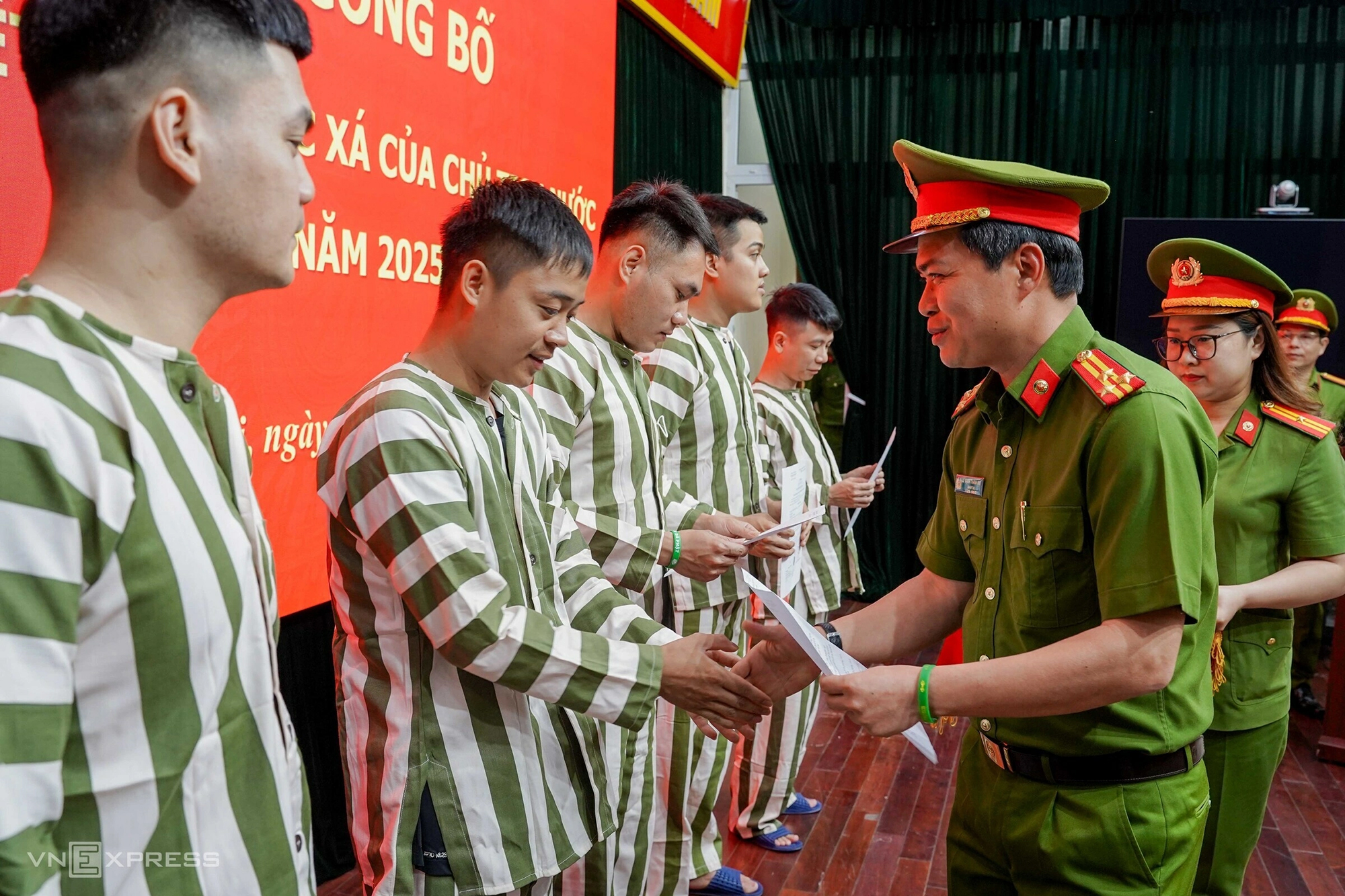 |
Prison No. 1 of the Hanoi City Police Department grants amnesty decisions to inmates on 30/4. Photo: Hoang Giang |
Prison No. 1 of the Hanoi City Police Department grants amnesty decisions to inmates on 30/4. Photo: Hoang Giang
Inmates convicted of treason, espionage, activities aimed at overthrowing the people's administration, terrorism against the people's administration, and disrupting security are not eligible. Those previously granted amnesty, those currently facing prosecution for other crimes, and those with two or more prior convictions are also excluded.
Since 2009, Vietnam has granted amnesty 11 times, releasing over 100,000 inmates who demonstrated good behavior, work ethic, and study habits. Most recently, on the 50th anniversary of reunification (30/4/2025), 8,056 individuals were granted amnesty. The majority have returned to their residences and reintegrated into society.




